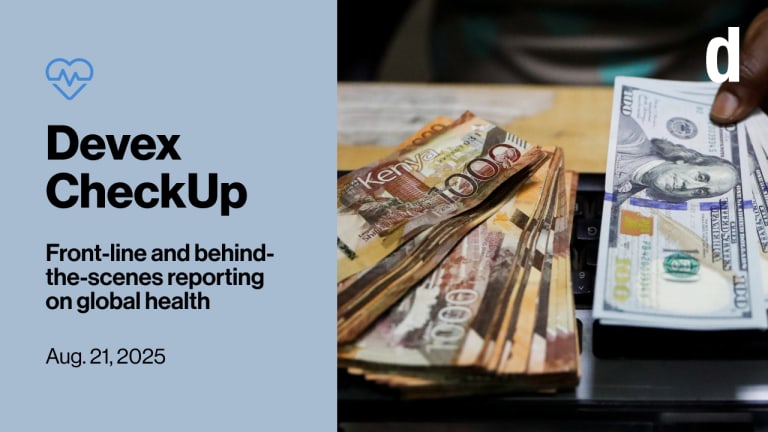
More mothers in Mozambique, than ever before, are delivering their babies in health facilities instead of at home. And more women and men, than ever before, are using contraceptives to plan their families. And more children, than ever before, are getting the vaccines that they need.
Yet despite these signs of progress, far too many mothers and babies are still dying — and most of these deaths are preventable. The average woman in Mozambique gives birth to more than five children. Nationwide, 48 percent of teenagers become pregnant before the age of 18. Some 43 percent of children under age 4 are stunted. And life expectancy at birth in Mozambique is just 54.4 years.
There is much we still need to do to ensure that every woman, child, and adolescent in Mozambique gets the prevention and health care needed, and has the opportunity to thrive and live a productive, happy, and long life. Mozambique’s investments today in health and well-being will pay dividends tomorrow in lives saved and improved, in stronger and more prosperous communities, and in a thriving country economy. Our investments today will put Mozambique on the pathway to independently financing its people’s health needs in the future.
Together, the Ministry of Health and its partners, through the Global Financing Facility platform, are injecting new life — and funding — into Mozambique’s health sector, with a sharp focus on results. The GFF, an innovative financing model hosted at the World Bank, is bringing together multiple sources of financing in a synergistic way to support country priorities for women, children, and adolescents.
This week in Maputo, the government of Mozambique is hosting the sixth GFF Investors Group meeting, where countries and partners will discuss progress across 16 GFF countries, including Mozambique, and plan for expansion to a total of 50 countries, as they learn from Mozambique and other frontrunners.
In 2016, after Mozambique became one of 16 GFF countries, all development partners who invested in health, with an interest in improving the lives of mothers, children, and adolescents in Mozambique, came together, under the leadership of the government, to develop an investment case. In the investment case, the government identified high-impact interventions and priorities for investing in health for the next five years.
Bilateral partners, United Nations agencies, civil society organizations, the private sector, and others aligned themselves — and their financing — directly behind these priorities.
What does this mean for mothers, children, and adolescents with the greatest needs? It means that funding will be better coordinated and overseen by the Ministry of Health, which will trim transaction costs, increase efficiency, and drive stronger and faster results, especially in the 42 districts that are lagging behind in terms of available funding and performance on health indicators.
The government is also training community health workers to reach everyone who needs care, boosting the performance of hospitals and clinics, and driving improved service delivery outcomes, including in nutrition, family planning, and safe deliveries. To be able to better track births, deaths, and causes of deaths, the government is strengthening the civil registration and vital statistics system.
Because of soaring teen pregnancy rates and high malnutrition and anemia among adolescent girls, the government is prioritizing actions to tackle adolescent health. A national consultation with adolescents and young people informed plans that are now underway to open adolescent-friendly clinics and conveniently provide information on and access to contraceptives, including in schools.
These efforts will generate results quickly, especially because financing will be tied to the achievement of results. But every move the government makes today is also focused on how it will increase its domestic resources for health, in the longer-term. The GFF has been working with the government to refine its health financing strategy, including analyzing where the government can raise more domestic resources for health. The government is committed to not substituting domestic financing with donor financing, and to increasing domestic financing as a share of total health spending over time. Importantly, the government has strengthened governance and accountability for results.
To succeed in ensuring that every woman, child, and adolescent in Mozambique gets the health care she needs, and has the opportunity to live a productive life, national level policy and financing is not enough. Every citizen of this country has a role to play in its success. If Mozambique successfully invests in its women, children, and adolescents, we will see a new era of health and prosperity in Mozambique, for generations to come.
Join the Devex community and access more in-depth analysis, breaking news and business advice — and a host of other services — on international development, humanitarian aid and global health.










